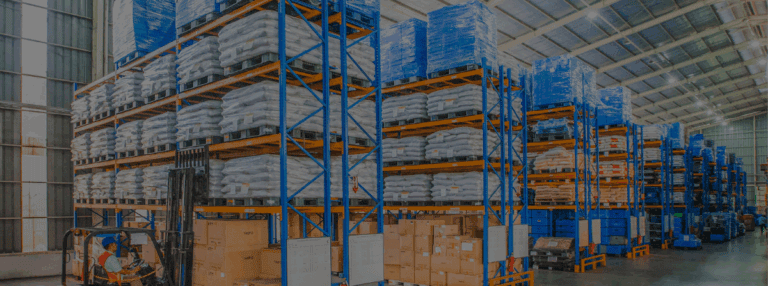What makes UgoWork’s lithium-ion forklift batteries and charging infrastructure different?
If your company has a dedicated material handling team, you know, as an operations or maintenance manager, that many forklift battery vendors hawk that their products are the “best” and can “out-perform” competitors regardless of the gruelling work conditions you put them through. You’ve heard all the promises before, right?
If you simply want your forklift batteries to work, you need to understand what causes them to stop working in the first place.
Why conventional batteries cause you grief
If you’re still relying on lead-acid forklift batteries, you may have faced a bunch of throughput and downtime issues:
- Regular maintenance, like watering, equalization charging, and cleaning
- Voltage drops as the battery discharges, reducing forklift travel speeds and lift power
- Slow recharge times (8 hours to fully charge plus 8 hours of cooling before they can be used again)
- Constant battery swaps in multi-shift operations
- Reduced performance in hot and cold environments
- Over-charging and under-charging, which can lead to thermal runaway or damage internal components
- Using the wrong charger
- Frequent battery replacements
Battery failures can happen at any time—and with no means to preemptively track batteries’ state of health, forklifts can come to a screeching stop. Idle equipment. Idle workers. Idle throughput.
Legacy lithium-ion batteries or lithium-ion batteries that are on the cheaper side are also prone to failure. Many of the same problems of lead-acid batteries occur with lithium-ion batteries with outdated technologies, including misuse, poor quality cells and battery design, inadequate charging systems, and lack of performance monitoring. These factors can cause your lithium-ion batteries to wear and tear prematurely, which also leads to costly downtimes, reduced productivity, and unplanned expenses, ultimately forcing you to purchase additional batteries sooner than expected.
What makes UgoWork’s batteries different?
We get it. You’ve heard the sales pitches over and over again from other forklift battery manufacturers. You’re skeptical.
But what if we could prove that our next-generation lithium-ion forklift batteries were designed for peak performance and minimal failure?
Battery design
UgoWork forklift batteries feature a robust North American design with reinforced enclosures to prevent damage from impact or vibrations. Our modular lithium packs help you save on costs because you can simply buy a refuelable pack (and not change the complete battery) when a battery comes to the end of its useful life. Their high-quality cells and pack design reduce the risks of voltage imbalances; narrow tolerance ranges ensure that each cell in the battery pack discharges and charges at roughly the same rate.
Our batteries also incorporate an advanced, proprietary battery management system (BMS) and thermal management system (TMS).
Among other things, the BMS monitors the batteries’ voltage and current in real time to prevent overcharging or excessive discharging. It also checks for cell balancing to avoid uneven wear and the danger of cells overheating. Finally, the BMS manages fail-safes and redundancies to shut down a battery if anomalies are detected. If the BMS detects anything is wrong, an alert will be immediately sent to the service team for follow-up.
Because heat is the #1 enemy of lithium-ion batteries, UgoWork’s TMS prevents dangerous overheating. Its smart temperature management algorithms ensure uniform and optimal temperature for all cells—and are based on both the real-time usage and the surrounding environment. What’s more, our batteries are configured to perform in cold environments; this means that if they are used in cold storage for the food and beverage industry, for example, the battery modules are heated and maintained within the optimal temperature range for charging and operating, so that the batteries can still be used without affecting their performance.
You can also gain peace of mind knowing that UgoWork forklift batteries are UL listed; UL has certified our batteries after extensive testing and inspections for mechanical, electrical and fire safety. Major OEMs have also conducted tests on our batteries—often for weeks—and have certified them. Ultimately, UgoWork rigorously carries out Highly Accelerated Life Testing (HALT) to identify and address potential failure modes before our batteries hit production and the market. Involving thermal cycling, vibration testing, electric overstress and drop tests, our HALT does not simulate real-world conditions. In fact, it pushes the batteries to their limits to accelerate failures that might occur over years of normal use. It allows UgoWork engineers to identify the weakest component and robustify the design further.
Concerned about having to stop operations in order to update your batteries’ firmware? We cut out that hassle for you. With our over-the-air (OTA) updates, we use wireless connections to remotely send updates, new configurations, and programming changes to our cloud-based batteries. No physical access to the equipment required. And don’t worry: these updates take place while you sleep.
Charging infrastructure
UgoWork takes a unique approach to forklift charging by integrating our chargers directly into our batteries. This eliminates the need for bulky chargers and dedicated battery rooms. Our ultra-compact charging station is a game-changer, providing the flexibility to install as many units as needed, anywhere on the shop floor. This allows you to optimize your space and workflow, placing the charging points where they’re most convenient for your forklift operators.
What’s even more convenient is that our charging station is multi-voltage. It’s compatible with any UgoWork battery, regardless of voltage. This means you can install just a few charging points in your warehouse and use them for all your forklifts, cutting down on unnecessary back-and-forth between different chargers and equipment.
Charging is as simple as a handshake. The plugs are ergonomically designed to snap into place effortlessly. Unlike traditional chargers that use an SB-type connector, our system features an EV-type charging connector. This comes with built-in communication and an interlock system to ensure a safe connection and prevent arcing, which can damage the equipment and cause serious safety threats.
Once plugged in, all the operator needs to do is press a button. In about an hour, the battery will be fully charged, and the system automatically stops charging when it reaches 100%. There’s no risk of overcharging, making the process seamless and efficient.
When the charge is complete, the operator simply presses the button again to safely unplug the battery. This extra step is another safety mechanism, ensuring the battery is disconnected properly and preventing any potential hazards.
Overall, by integrating the charger into the battery, UgoWork eliminates the need for large chargers and battery rooms, freeing up space and simplifying your operations.
These are just some of the main advantages of UgoWork’s lithium-ion forklift batteries and charging infrastructure. Our team of experts can provide you with more details about their advantages based on the poor performance and headaches you’ve experienced with other battery technologies.




